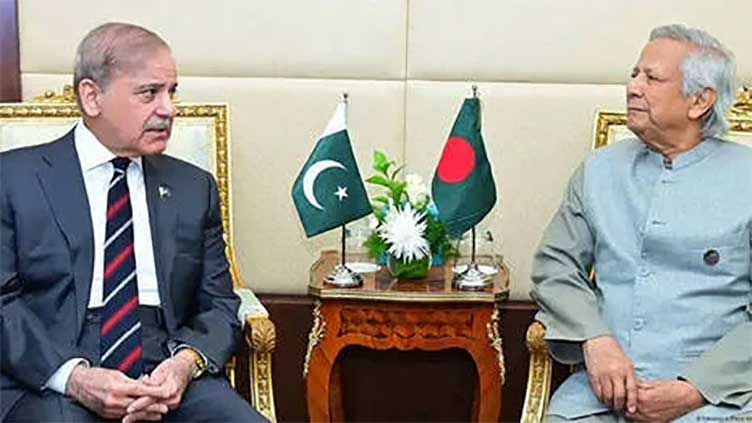Pakistan-Bangladesh ties: A game-changer in South Asia

Business
Pakistan’s diplomacy has revitalised ties with Bangladesh, pushing bilateral trade past $1 billion
LAHORE (Dunya News) - After 15 years, Pakistan exported 26,000 metric tons rice, with more shipments on the way.
Demand for Pakistani cotton, sugar and textiles is surging, while Bangladeshi jute, pharma and garments are gaining traction in Pakistan. Direct flights and online visas are cementing the bond.
The new Bangladeshi leadership is pivoting towards Pakistan. This shift, driven by General Asim Munir and SIFC’s strategic vision, opens fresh economic avenues and reduces India’s influence in the region.
With China in the mix, this trilateral cooperation is a blow to India’s dominance. Gwadar Port, CPEC expansion, and defence ties are reshaping South Asia’s geopolitics, solidifying Pakistan’s role and countering India’s ambitions thus adding to Indian nervousness.
AFP adds: Bangladesh and Pakistan have started direct government-to-government trade after decades of troubled relations with imports of 50,000 tons of rice, Dhaka said Tuesday.
Direct private trade between the countries restarted in November 2024, when a container ship sailed from Pakistan’s Karachi to Bangladesh’s Chittagong.
It was the first cargo ship in decades to sail directly between the countries.
“For the first time we are importing 50,000 tons of rice from Pakistan, and it is the first government-to-government deal between the two countries,” Ziauddin Ahmed, a senior official at the food ministry in Dhaka.
Bangladesh’s Directorate General of Food signed a memorandum of understanding with the state-owned Trading Corporation of Pakistan (TCP) in January for rice imports.
Ahmed said trade with Pakistan offers a “new avenue of sourcing and competitive pricing,” with state authorities in recent years importing the staple from India, Thailand and Vietnam.
Imports are critical to low-lying Bangladesh, a nation that is among the world’s most vulnerable to climate change, with large areas made up of deltas where the Ganges and the Brahmaputra rivers wind toward the sea.
The country of 170 million is particularly at risk of devastating floods and cyclones — disasters that only stand to accelerate as the planet keeps warming.
Private Bangladeshi companies have imported Pakistani rice for years, but Pakistani goods previously had to be off-loaded onto feeder vessels — usually in Sri Lanka, Malaysia or Singapore — before traveling on.
Meanwhile, China is wooing Bangladesh’s leaders, with members of the powerful Bangladesh National Party (BNP) on a visit to Beijing, the latest group offered a tour after trips by members of the Jamaat-e-Islami and other Islamist parties.
India has long been wary of China’s growing regional clout and the world’s two most populous countries compete for influence in South Asia, despite a recent diplomatic thaw.
China said this month that it was preparing dedicated hospitals for Bangladeshi patients after relations soured with India, which was once a major health care destination for them.


